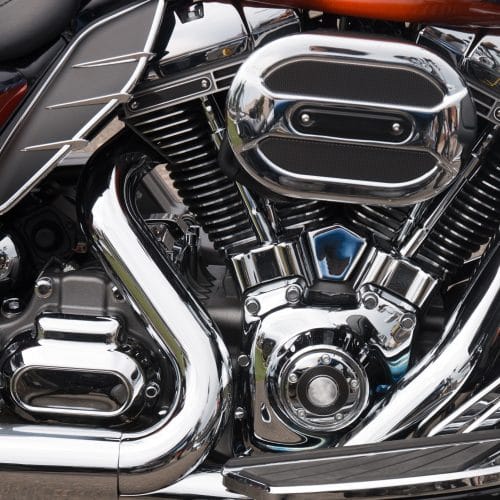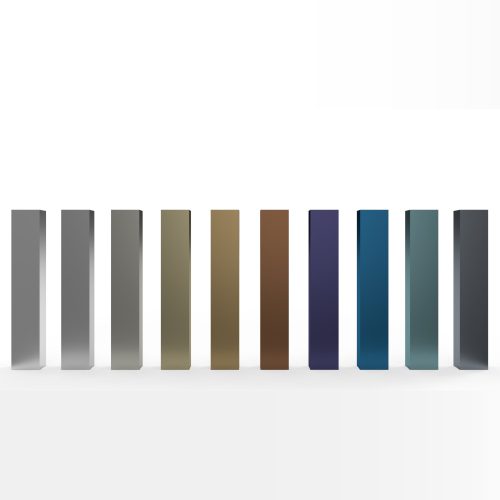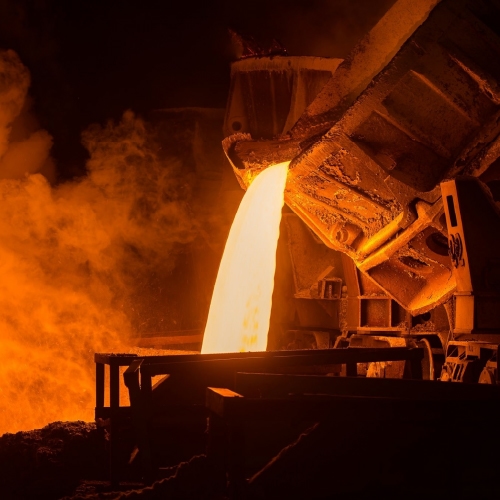NICKEL ALLOY FLANGES
Monel 400 Flanges
Monel 400 Nickel Alloy Flanges | N04400 Nickel Alloy Flanges | EN 2.4360 Nickel Alloy Flanges
Description of Monel 400 Flanges
Monel 400 Flanges are a nickel-copper alloy with excellent corrosion resistance in a range of environments, including seawater, acids, and alkalis. Due to its high strength and resistance to corrosion, Monel 400 is a popular material for use in various industrial applications, including piping systems, valves, and flanges.
Monel 400 Flanges are typically used in piping systems to connect pipes or valves, or to close off the end of a pipe. Flanges provide a means of easily connecting and disconnecting piping components for maintenance, repair, or replacement. They are also used to provide a seal between two piping components to prevent leaks.
Alloy 400 Flanges come in a variety of sizes and configurations, including slip-on, weld neck, threaded, blind, lap joint, and socket weld. Each type of flange has a specific design that makes it suitable for a particular application. Monel 400 Flanges are equivalent to Alloy 400 Flanges, EN 2.4360 Flanges, NiCu30Fe Flanges, and N04400 Flanges.
Monel 400 Slip-on flanges are the most commonly used type of flange and are ideal for low-pressure applications. They slide over the end of a pipe and are then welded into place. Weld neck flanges are designed for high-pressure applications and are welded directly to the pipe. They have a long neck that extends from the flange, which provides additional strength and support.
Monel 400 Threaded flanges have internal threads that allow them to be screwed onto the end of a pipe. They are typically used in low-pressure applications and are easy to install and remove. Blind flanges are used to close off the end of a pipe or valve and are available in both raised face and flat face configurations.
Monel 400 Lap joint flanges are used in applications where frequent dismantling is required. They consist of two parts: a stub end and a loose backing flange. The stub end is welded to the pipe, and the backing flange is free to rotate around the stub end, making it easy to remove and replace. Socket weld flanges are similar to slip-on flanges but have a socket in the bore to accommodate the pipe.
Monel 400 Flanges are available in various pressure classes, ranging from 150 to 2500. The pressure class indicates the maximum pressure that the flange can withstand at a given temperature. The temperature range for Monel 400 Flanges is typically between -100°F and 800°F.
ANSI B16.5 Monel 400 Flanges are a popular choice for piping systems due to their high strength and excellent corrosion resistance. They are available in a variety of sizes and configurations, making them suitable for a wide range of applications. The specific type of flange used will depend on the application requirements, including pressure, temperature, and frequency of maintenance.
ASME B16.5 Monel 400 Flanges are manufactured using various techniques, including forging, machining, and casting. Forged flanges are typically used in high-pressure applications and have a superior grain structure that provides excellent strength and resistance to fatigue. Machined flanges are used in applications where precise dimensions and a smooth surface finish are required, while cast flanges are used for applications that require complex shapes or large sizes.
ASTM B564 Monel 400 Flanges are also available with various surface finishes, including a raised face, flat face, or ring joint face. A raised face flange has a flat surface with a raised ring around the bore that provides a sealing surface for the gasket. A flat face flange has a smooth, flat surface that requires a gasket to be installed on the flange face. Ring joint face flanges are used with metal ring gaskets that provide a high-pressure seal.
When selecting ASME SB564 Monel 400 Flanges for an application, it is important to consider several factors, including the material compatibility with the fluid or gas being transported, the pressure and temperature requirements, and the dimensions and configuration of the piping system.
Nickel Alloy Monel 400 Flanges have excellent corrosion resistance to a wide range of environments, including seawater, acids, and alkalis. However, they may not be suitable for use with certain chemicals or gases that can cause stress corrosion cracking or other forms of corrosion. In such cases, a different material may be required.
The pressure and temperature requirements of the application must also be considered when selecting Monel 400 Flanges. The pressure class of the flange should be chosen based on the maximum pressure that the piping system will be subjected to at a given temperature. The temperature range for Monel 400 Flanges is typically between -100°F and 800°F, although this can vary depending on the specific alloy composition.
ASME SB564 Monel 400 Flanges are a reliable and durable choice for a range of piping applications. They are available in various sizes, configurations, and pressure classes, and can be manufactured using different techniques to suit the specific requirements of the application. When selecting ASTM B564 Monel 400 Flanges, it is important to consider factors such as material compatibility, pressure and temperature requirements, and the dimensions and configuration of the piping system.
ASME B16.5 Monel 400 Flanges are known for their high mechanical strength, which makes them resistant to deformation, cracking, and other forms of mechanical damage. This strength is due to the alloy's unique combination of nickel and copper, which provides a high level of toughness and ductility.
In addition to their mechanical strength, ANSI B16.5 Monel 400 Flanges are also highly resistant to corrosion. This is due to the alloy's high nickel content, which provides excellent resistance to corrosion in a wide range of environments, including seawater, acids, and alkalis. The copper content in the alloy also provides added corrosion resistance.
Monel 400 Flanges can be used in a wide range of applications, including petrochemical processing, marine engineering, and power generation. They are also commonly used in applications where high reliability and durability are required, such as in the oil and gas industry.
The design of Nickel Monel 400 Flanges must also be carefully considered to ensure that they meet the requirements of the application. Factors such as the flange's bolt hole spacing, hub thickness, and flange diameter must be carefully selected to ensure that the flange can withstand the pressures and temperatures that it will be subjected to.
The installation of Nickel Alloy Monel 400 Flanges is also critical to ensure that they function properly and provide a reliable seal. The flange must be properly aligned with the adjoining components, and the correct type of gasket must be selected based on the application requirements. The bolts used to secure the flange must also be properly torqued to ensure that they provide a reliable seal.
Monel Alloy 400 Flanges are a popular choice for piping applications due to their high strength, excellent corrosion resistance, and durability. When selecting Monel 400 Alloy Flanges, it is important to consider factors such as material compatibility, pressure and temperature requirements, and the dimensions and configuration of the piping system. Proper installation and maintenance are also critical to ensure that the flanges provide a reliable seal and perform as intended.
Monel 400 Alloys Flanges can also be customized to meet specific application requirements. For example, they can be machined with a special groove for an O-ring seal, or designed with a special shape to match the contour of the adjoining component.
In addition to their mechanical and corrosion resistance properties, Monel 400 Flanges also have good thermal conductivity, which makes them suitable for use in high-temperature applications. They are also resistant to thermal expansion, which helps to maintain their dimensional stability and prevent leaks in the piping system.
Monel 400 Flanges can be manufactured to meet various international standards, including ASTM, ASME, ANSI, and DIN. These standards specify the materials, dimensions, and testing requirements for the flanges, ensuring that they meet the necessary quality and performance standards.
Testing of Nickel Monel 400 Flanges may include visual inspection, dimensional inspection, and non-destructive testing such as X-ray and ultrasonic testing. This testing is important to ensure that the flanges are free from defects that could compromise their strength or reliability.
Proper care and maintenance of Monel 400 Flanges are important to ensure that they remain in good condition and perform as intended. This may include regular cleaning, inspection, and lubrication of the flange and bolts. Any signs of corrosion or damage should be addressed promptly to prevent further degradation of the flange.
In summary, Monel 400 Flanges are a popular choice for piping applications due to their high strength, excellent corrosion resistance, and durability. They can be customized to meet specific application requirements and are manufactured to meet international standards. Proper installation, testing, and maintenance are important to ensure that they perform as intended and provide a reliable seal.
Monel 400 Flanges are available in various types, including weld neck, slip-on, socket weld, blind, and threaded flanges. Each type has a unique design that offers specific advantages depending on the application requirements.
Monel 400 Weld neck flanges are designed to be welded directly to the piping system, providing a high level of strength and reliability. Slip-on flanges are designed to slide over the end of the pipe and are easier to install than weld neck flanges. Socket weld flanges are similar to slip-on flanges but have a socket on the inside that provides additional support to the pipe.
Monel 400 Blind flanges are used to close off the end of a pipe and are commonly used in applications where the piping system needs to be flushed or drained. Threaded flanges have internal threads that allow them to be screwed onto the end of a pipe, making them easy to install and remove.
Monel 400 Flanges can also be coated or lined with materials such as PTFE or rubber to provide additional corrosion resistance or to prevent contamination of the process fluid.
In addition to their use in piping systems, Alloy 400 Flanges are also used in other industrial applications such as pumps, valves, and heat exchangers. They are often used in applications where high reliability and durability are required, such as in the aerospace and defense industries.
Monel 400 Flanges are commonly used in a wide range of industrial applications due to their high mechanical strength, excellent corrosion resistance, and durability. Some of the most common applications of Monel 400 Flanges include:
- Petrochemical processing: Alloy 400 Flanges are often used in the petrochemical industry for applications such as pipelines, valves, and pumps. The alloy's high resistance to corrosion and erosion makes it well-suited for use in harsh chemical environments.
- Marine engineering: Monel Alloy 400 Flanges are also commonly used in marine engineering applications such as shipbuilding, offshore oil and gas platforms, and seawater piping systems. The alloy's high resistance to corrosion in seawater makes it an ideal choice for these applications.
- Power generation: Nickel Monel 400 Flanges are used in power generation applications such as steam turbines, boilers, and heat exchangers. The alloy's high mechanical strength and resistance to corrosion and erosion make it well-suited for use in these demanding applications.
- Aerospace and defense: Nickel Alloy 400 Flanges are also used in aerospace and defense applications such as aircraft engines, missile systems, and rocket motors. The alloy's high strength and resistance to high temperatures make it well-suited for use in these applications.
- Chemical processing: ANSI B16.5 Monel 400 Flanges are used in various chemical processing applications such as reactors, distillation columns, and storage tanks. The alloy's high resistance to corrosion and erosion make it well-suited for use in harsh chemical environments.
- ASME B16.5 Monel 400 Flanges are a versatile and reliable choice for a wide range of industrial applications where high strength, excellent corrosion resistance, and durability are required. With their ability to withstand harsh environments and high-pressure systems, Monel 400 Flanges are a critical component in many industrial processes.
Overall, Monel 400 Flanges offer a range of benefits that make them an attractive choice for various industrial applications. Their high strength, excellent corrosion resistance, and durability make them suitable for use in harsh environments and high-pressure systems. With proper installation, testing, and maintenance, Monel 400 Flanges can provide a reliable and long-lasting sealing solution.
Raykam Alloys LLP is a reputed supplier, stockist and exporter of Monel 400 Flanges from Mumbai, India. We keep ready-stocks of a wide range of sizes and dimensions to ensure timely deliveries. Our manufacturing facility is up to date with latest machinery and timely maintainance. Our products undergo strict quality check procedures and technology driven stock maintainance protocols. All our materials come with a Test Certificate and Inspection Sticker to ensure only superior quality materials are delivered to our prestigious customers.
EQUIVALENT STANDARDS OF MONEL 400 FLANGES
| ASTM | AISI | EN | DIN | UNS | IS |
|---|---|---|---|---|---|
| Alloy 400 | Monel 400 | 2.4360 | NiCu30Fe | N04400 |
CHEMICAL PROPERTIES OF MONEL 400 FLANGES
| C | Mn | Ni | Cr | P | Si |
|---|---|---|---|---|---|
| 0.15 | 2 | 63 | 0.5 | ||
| Cu | Ti | Al | Fe | V | Zr |
| 30 | 0.3 | 0.5 | 2 |
DIMENSIONS OF MONEL 400 FLANGES
| Size | Class | ||
|---|---|---|---|
| Min | Max | Min | Max |
| 1/4" NB | 48" NB | 150# | 2500# |
Applications of Monel 400 Flanges
- Feed Water and Steam Generator Tubing
- Brine Heaters, Sea Water Scrubbers in Tanker Inert Gas Systems
- Sulfuric Acid and Hydrofluoric Acid Alkylation Plants
- Pickling Bat Heating Coils
- Heat Exchangers in a variety of Industries
- Transfer Piping from Oil Refinery Crude Columns
- Plant for the Refining of Uranium and Isotope Separation in the production of Nuclear Fuel
- Pumps and Valves used in the Manufacture of Perchlorethylene, Chlorinated Plastics
- Monoethanolamine (MEA) Reboiling Tube
- Cladding for the Upper Areas of Oil Refinery Crude Columns
- Propeller and Pump Shafts
- Petrochemical processing
- Marine engineering
- Power generation
- Aerospace and defense
- Chemical processing
- Oil and gas industry
- Pharmaceutical industry
- Food processing industry
- Water treatment systems
- Pulp and paper industry
- HVAC systems
- Mining industry
- Desalination plants
- Cryogenic applications
- Environmental engineering projects
Available Types of Monel 400 Flanges
- Slip-On Flanges (SO Flanges)
- Socket Weld Flanges (SW Flanges)
- Blind Flanges (BL Flanges)
- Weld Neck Flanges (WN Flanges)
- Threaded / Screwed Flanges (THD Flanges)
- Lap Joint Flanges (LJ Flanges)
- Long Weld Neck Flanges (LWN Flanges)
- Spectacle Blind Flanges (SPE Flanges)
- Plate Flanges (PF Flanges)
- Ring Type Joint Flanges (RTJ Flanges)
- Tongue And Groove Flanges (TG Flanges)
- Reducing Flanges
- Orifice Flanges (OR Flanges)
- Expander Flanges (EXP Flanges)
- Raised Face Flanges (RF Flanges)
- Flat Face Flanges (FF Flanges)
- Square Flanges
- National Pipe Thread Tapered Flanges (NPT Flanges)
Standards Available for Monel 400 Flanges
- ANSI B16.5
- ASME B16.5
- ASME B16.47
- ASTM B564
- ASME SB564
- MSS SP-44
- API 6A
- BS 4504
- DIN 2632-2638
- EN 1092
- JIS B2220
- ISO 7005
- NORSOK L-005
- GOST 12820
- GOST 12821
- GOST 12822
- AFNOR NF E29-203
- CSA Z245.12
- MSS SP-75
- MSS SP-97
- MSS SP-105






